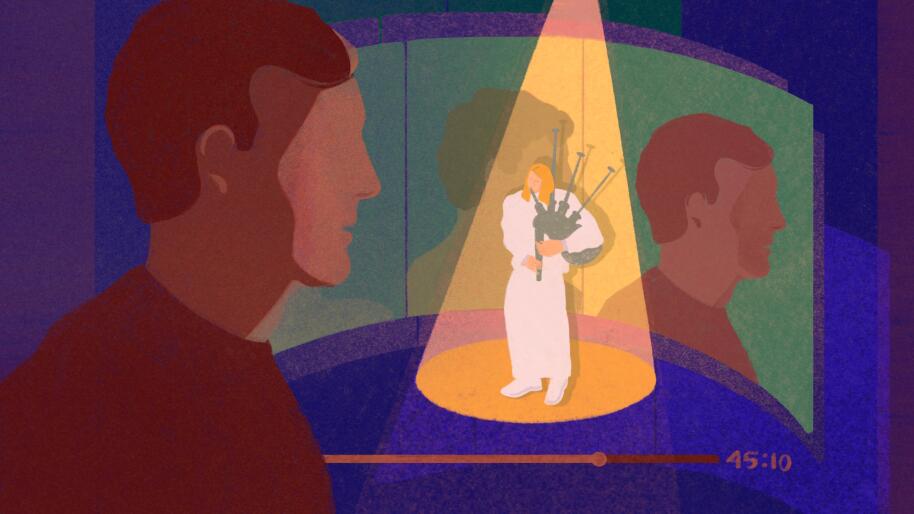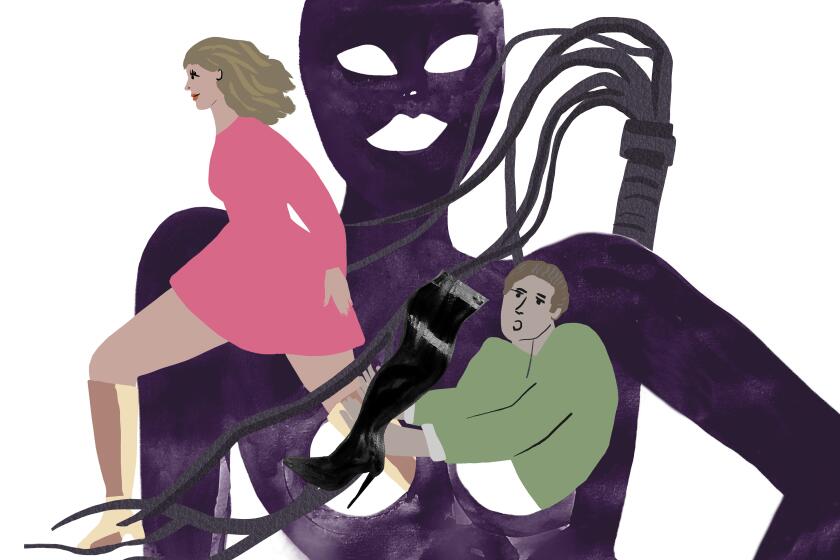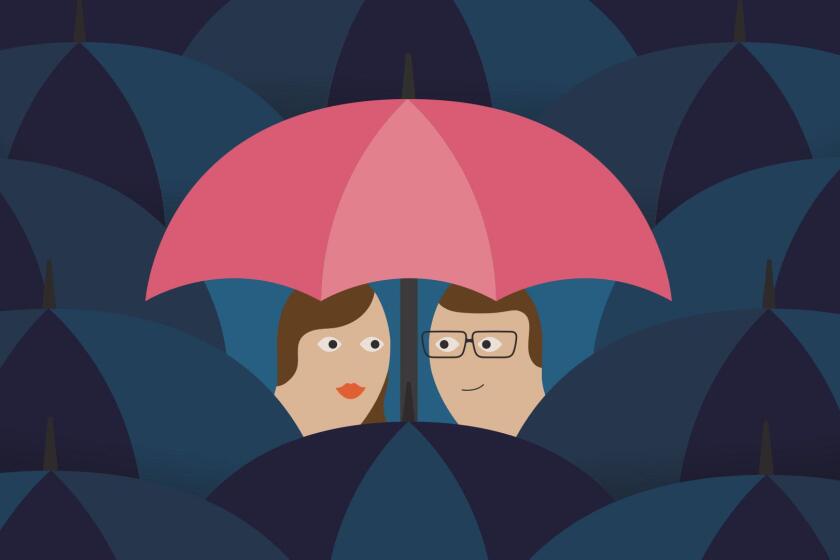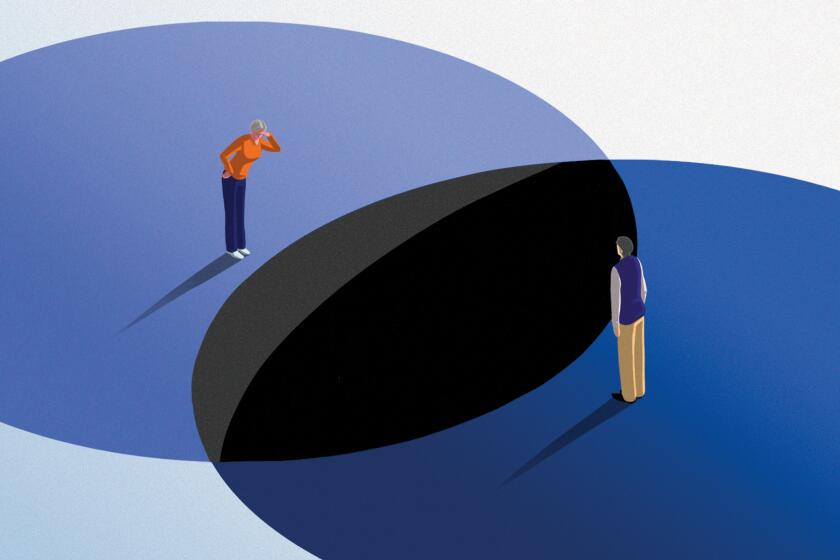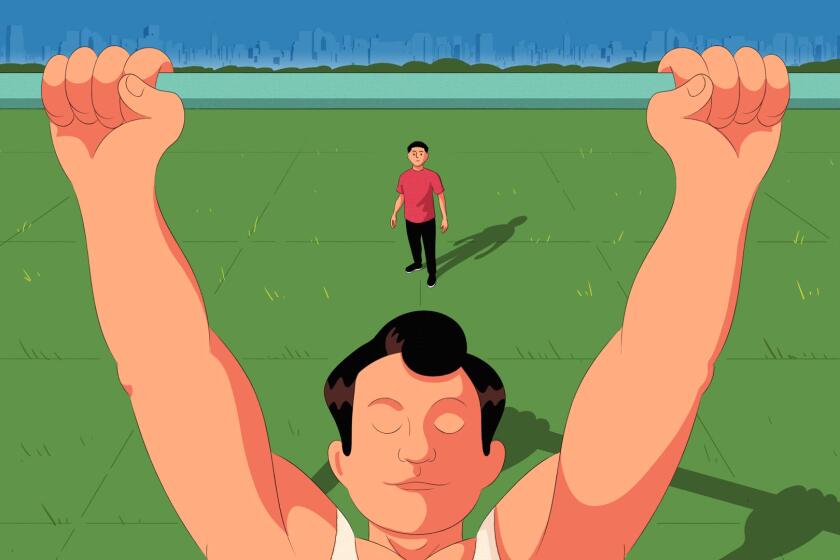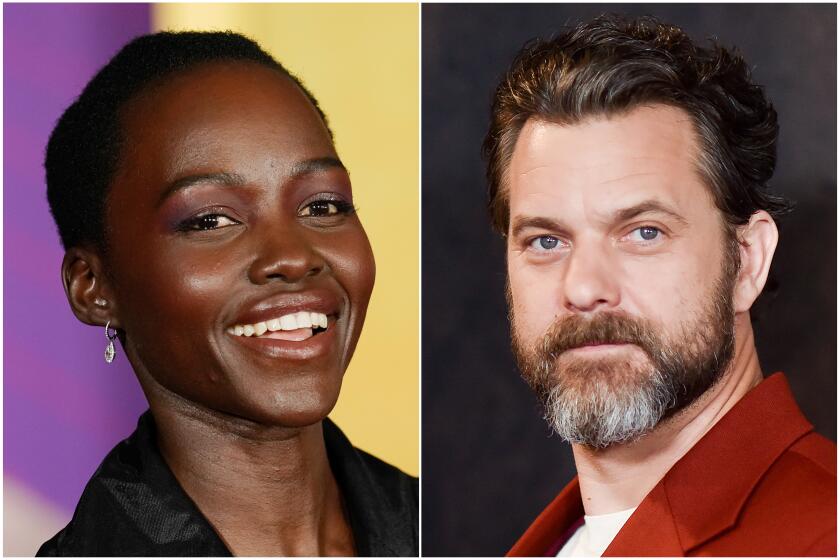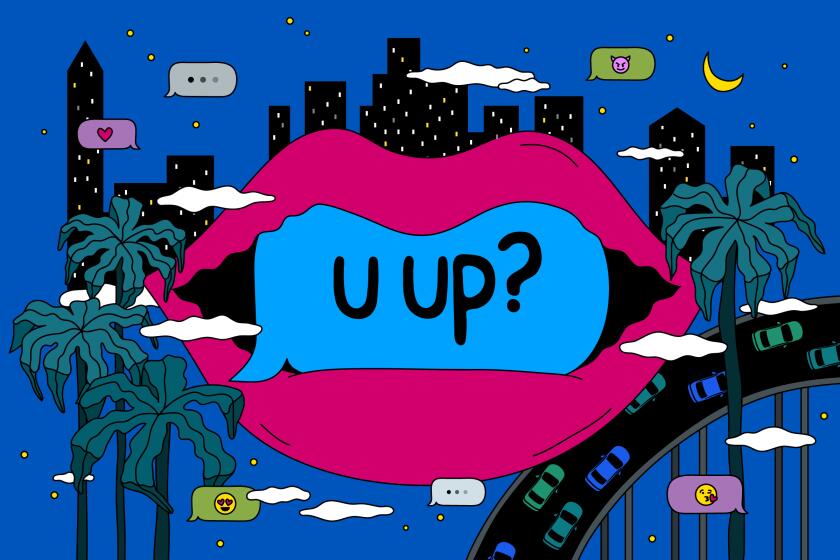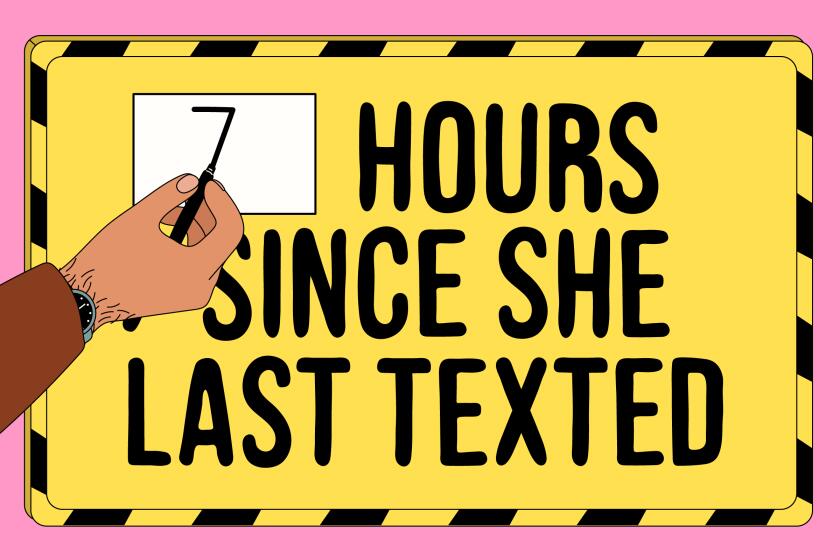L.A. Affairs: I broke up with her. Then she wrote a one-woman show about it
Namrata Vansadia / For The Times
“I’ve been immature,” I said during a painstaking call to Madeleine. We’d been friends since meeting at USC film school but had only recently started dating. “I’ve been feckless. I’ve been seeing a girl from Hinge concurrently. She asked if we could be a couple, and I said yes.”
I thought the breakup went as well as it could.
A few months later, Madeleine reached out to me via text.
She was friendly and easygoing and asked if we could talk. When I told her I was still seeing the girl from Hinge, her tone shifted. She hit me with a barrage of accusations, claiming I was a bad friend, and spoke of her respect for me in the past tense. She said I hurt her in ways I didn’t know.
I came to L.A. on a Thursday and was in a relationship by Sunday. He had great style and a nice smile, but was I really willing to change for him?
We never got on an actual phone call, and I assumed she hated me. How could there be such hard feelings when our romantic summer together had been nothing but positive? I understood why she felt jilted but not why this would be so relationship-ending. I missed my friend. All I had left was guilt.
Two years later after the breakup, I found out through mutual friends that Madeleine was putting on a one-woman show. It was an avant-garde piece in which she played the bagpipes and talked about her romantic history. Nervous that my most intimate moments would be exploited in front of an audience, I reached out to her.
“Hey, congratulations on the show!” I wrote. “I’d come but I’m not sure you want me there. I would love to catch up at some point.”
She never responded.
Being a person of the modern era, I did what everyone does when they can’t contact someone: I looked at her Instagram posts. I kept a keen eye on her show, so I knew when it got renewed and when it went to the Edinburgh Festival Fringe. Madeleine posted about having a meeting with Phoebe Waller-Bridge. The whole thing seemed to take on a life of its own, so I reached out to Madeleine’s college boyfriend.
“What’s your take on Madeleine’s show?” I texted my brother-in-arms.
I really wasn’t attracted to the photographer’s curly hair or intense eyes. I was used to dating really handsome men.
“I got scorched,” he replied. “Are you one of the guys? I only watched my section, and it was a mistake for sure.” He explained that Madeleine responded when he reached out. She forbade him from coming to see the show in person but she sold him a link to a YouTube recording for $8. He sent me the link and warned me to proceed with caution.
At this point, I was terrified. If he was portrayed in such a bad light, what chance did I have when she wouldn’t respond to me? I felt sick. I paced around my apartment, imagining the ways my naked body might be mocked or how my most intimate words could be fodder for jokes. Finally I sat down and pressed play.
The show was a modest affair in a black-box theater. Madeleine began the history of her ascent into womanhood, and the first story was about her college boyfriend. And he wasn’t kidding — he got scorched. Madeleine spoke of her lack of physical attraction to him, told stories of sexual dysfunction and made him out to be an all-around loser. So far, so bad, I thought.
Next was Madeleine’s second lover, a Scottish man who spoke frequently of his ex-girlfriend, a blond woman who looked suspiciously like Madeleine. I thought it was a bloodbath.
What happens to your dating life in Los Angeles when you always swipe right? I found out thanks to a series of first dates mostly with tragic men.
The thesis of the third scene was the Forgetables — men with whom Madeleine had hooked up since finishing college. I felt a wash of disappointment and relief as I watched. Could I be one of the Forgetables? Was I mistaken for putting so much thought into this performance when I never actually factored into her life at all?
In the next scene, about two-thirds of the way through the performance, the lights went dim, and the tone became hopeful. Madeleine introduced “Griffin,” a longtime friend and crush who invited her to his apartment to view his freshly painted bedroom. It was me. I was so proud of painting that bedroom.
She expressed her ecstasy when “Griffin” kissed her. All my fears and resentments felt silly as she described this person to be the most appealing and considerate partner she ever had. And then, inevitably, she came to the point in the story when I broke her heart.
“I’ve been immature,” a man who sounded like me said over a loudspeaker. “I’ve been feckless. I’ve been seeing a girl from Hinge concurrently.” These were my exact words, Madeleine said, because she had written them in her journal moments after.
Madeleine told the audience that she had considered replying: “But I love you. You made me feel things that I haven’t felt since James.” It was as if she was speaking to me through my computer screen. I had no idea she felt that way. I felt flattered and foolish for assuming the worst. But more than anything, I felt guilty. I didn’t comprehend what I had meant to her. The show didn’t have a happy ending, and I was afraid it was my fault.
After my marriage ended, I realized I still wasn’t lucky with relationships. But I had recently met a scientist on eHarmony and thought there might be a connection.
“You’re not responsible for how she feels about you,” my girlfriend reassured me. She was right. I initially thought Madeleine’s hostility was born out of anger but it was from a place of hurt. She probably got some resolution from writing the show — something I felt while typing my version of these events. I still haven’t reached out to her. Just like Madeleine, I don’t know what I’m supposed to say.
As it happens, my girlfriend is “the girl from Hinge.” We share an apartment on Abbot Kinney Boulevard and a lazy gray cat and we recently celebrated our three-year anniversary. I love her tremendously and I’m just glad she’s not an actor.
The author is a writer for video games at Robot Gentleman. He lives in Venice and is working on his first novel. Visit his website for more information at ben-gail.com.
L.A. Affairs chronicles the search for romantic love in all its glorious expressions in the L.A. area, and we want to hear your true story. We pay $400 for a published essay. Email LAAffairs@latimes.com. You can find submission guidelines here. You can find past columns here.
It's a date
Get our L.A. Goes Out newsletter, with the week's best events, to help you explore and experience our city.
You may occasionally receive promotional content from the Los Angeles Times.
